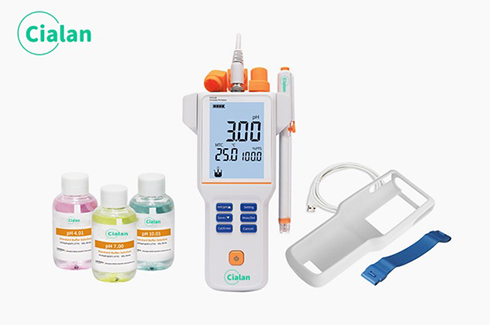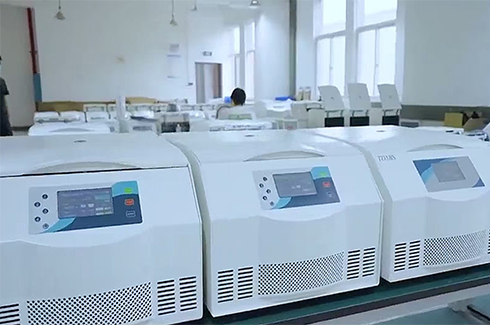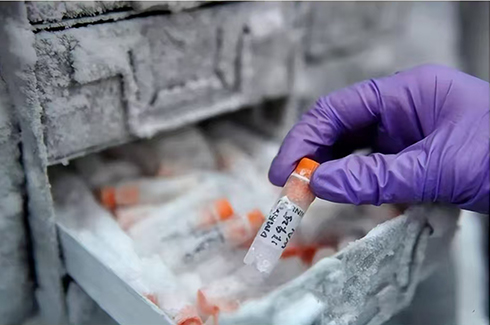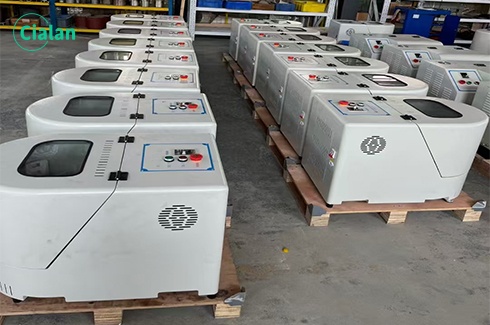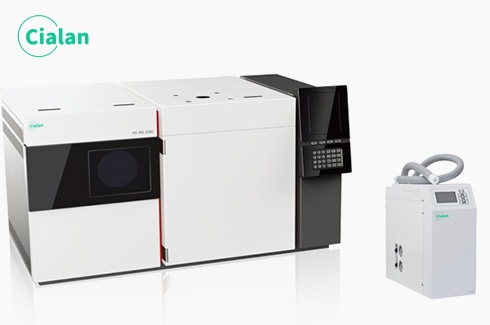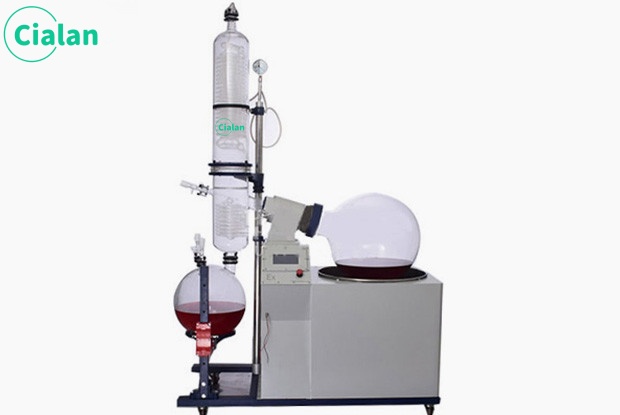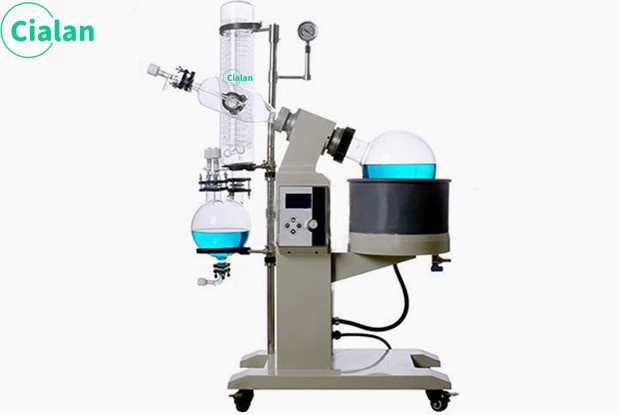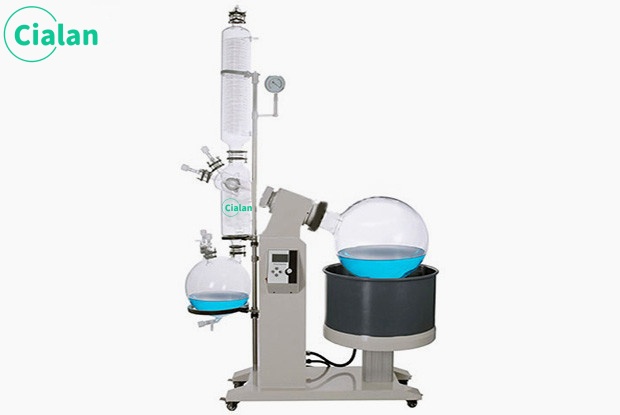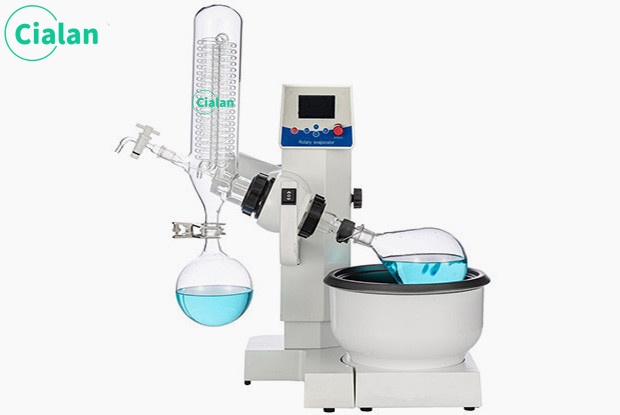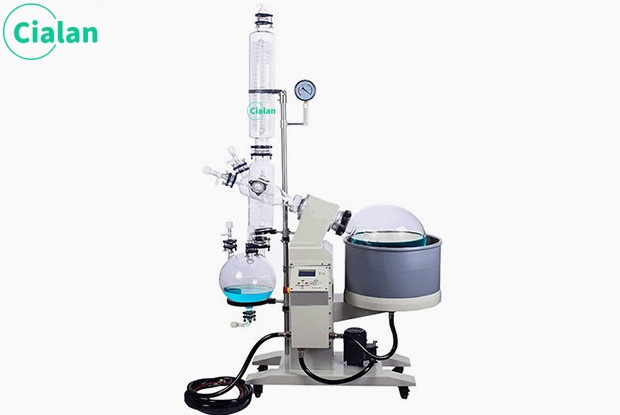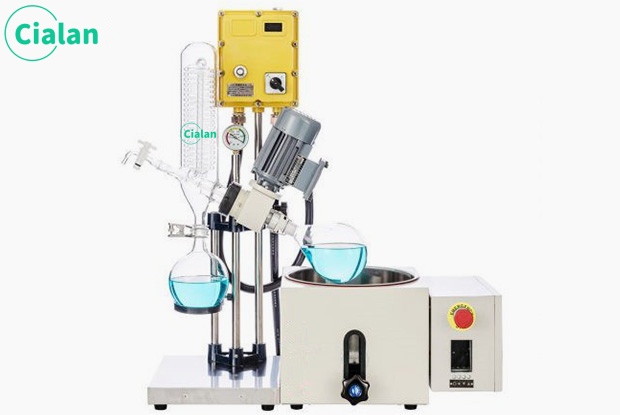Rotary evaporator’s FAQ
1.How to choose a suitable rotary evaporator?
1. Capacity of the evaporator 2. Heating temperature of heating pot and heating medium 3. Condenser with suitable condensation area 4. Circulating water vacuum pump 5.Rrequired capacity and temperature of chiller pump.
2.What is a rotary evaporator unit?
Under reduced pressure conditions, heating and rotation can evaporate volatile solvents to achieve concentration and purification.
3.What is the principle?
Vacuum distillation refers to the continuous distillation of a large amount of volatile solvents under reduced pressure to achieve the purpose of separation and purification.
4.What are the application areas?
Rotary evaporators can be used in scientific research and production processes in pharmaceutical, chemical, biological products and other industries, such as schools, enterprises, hospitals, etc.
5.What factors affect the efficiency of evaporation?
1. Vacuum degree 2. Rotation speed of the rotating bottle 3. Temperature of the water bath 4. Condenser
6.Vertical condenser or inclined condenser, which one is better?
A: For application requirements, the condensation effects of both are equivalent. The condensation area and cooling efficiency of these two condensers are the same.
7.What is the refrigerant of the cooling cycle machine?
A: The refrigerant is R404A.Chemical composition: Pentafluoroethane/trifluoroethane/tetrafluoroethane mixture.
8.What will be the impact of adding vacuum when working?
A: Vacuum will affect the boiling point of the sample. The sample is originally at the boiling critical point, and a sudden vacuum reduces the boiling point of the sample, causing the sample to explode and rush into the collection bottle.
9.How to connect the mains and vacuum controller, and what role does the vacuum pump play?
A: The vacuum controller is connected between the mains and the vacuum pump in series. When using the machine, the vacuum degree is not appropriate, and the reagents will explode and explode. By using a vacuum controller in series with the main, the vacuum degree inside the rotary evaporator can be accurately controlled, especially for the concentration of volatile reagents, which can achieve the maximum and most ideal results. recovery rate. It is also widely used in the vacuum distillation of organic reagents, the gradual control of vacuum degree, and the gradual extraction and use of solvents.
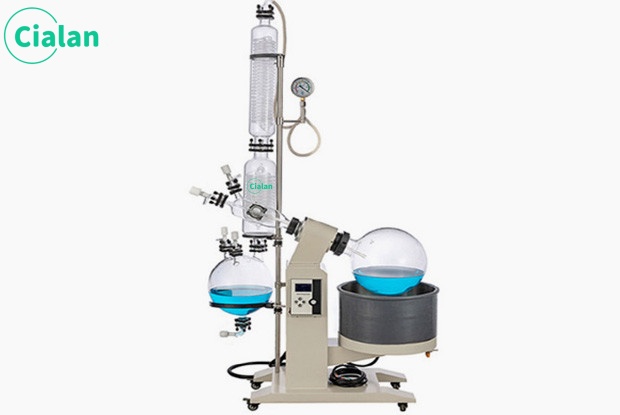
1. Capacity of the evaporator 2. Heating temperature of heating pot and heating medium 3. Condenser with suitable condensation area 4. Circulating water vacuum pump 5.Rrequired capacity and temperature of chiller pump.
2.What is a rotary evaporator unit?
Under reduced pressure conditions, heating and rotation can evaporate volatile solvents to achieve concentration and purification.
3.What is the principle?
Vacuum distillation refers to the continuous distillation of a large amount of volatile solvents under reduced pressure to achieve the purpose of separation and purification.
4.What are the application areas?
Rotary evaporators can be used in scientific research and production processes in pharmaceutical, chemical, biological products and other industries, such as schools, enterprises, hospitals, etc.
5.What factors affect the efficiency of evaporation?
1. Vacuum degree 2. Rotation speed of the rotating bottle 3. Temperature of the water bath 4. Condenser
6.Vertical condenser or inclined condenser, which one is better?
A: For application requirements, the condensation effects of both are equivalent. The condensation area and cooling efficiency of these two condensers are the same.
7.What is the refrigerant of the cooling cycle machine?
A: The refrigerant is R404A.Chemical composition: Pentafluoroethane/trifluoroethane/tetrafluoroethane mixture.
8.What will be the impact of adding vacuum when working?
A: Vacuum will affect the boiling point of the sample. The sample is originally at the boiling critical point, and a sudden vacuum reduces the boiling point of the sample, causing the sample to explode and rush into the collection bottle.
9.How to connect the mains and vacuum controller, and what role does the vacuum pump play?
A: The vacuum controller is connected between the mains and the vacuum pump in series. When using the machine, the vacuum degree is not appropriate, and the reagents will explode and explode. By using a vacuum controller in series with the main, the vacuum degree inside the rotary evaporator can be accurately controlled, especially for the concentration of volatile reagents, which can achieve the maximum and most ideal results. recovery rate. It is also widely used in the vacuum distillation of organic reagents, the gradual control of vacuum degree, and the gradual extraction and use of solvents.



